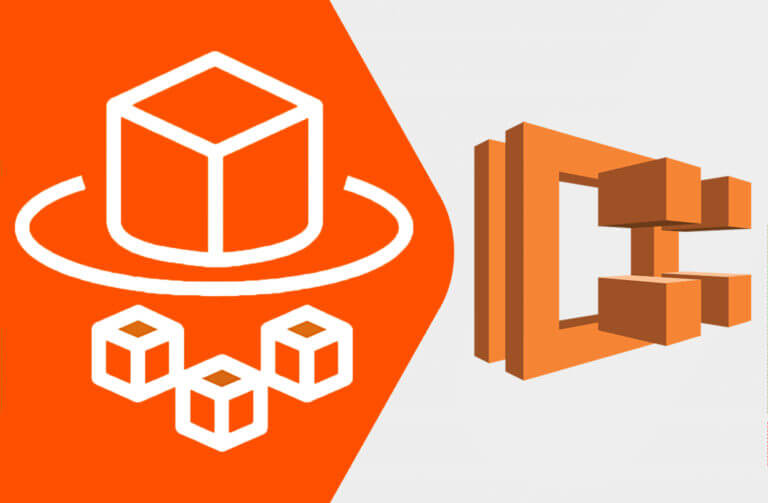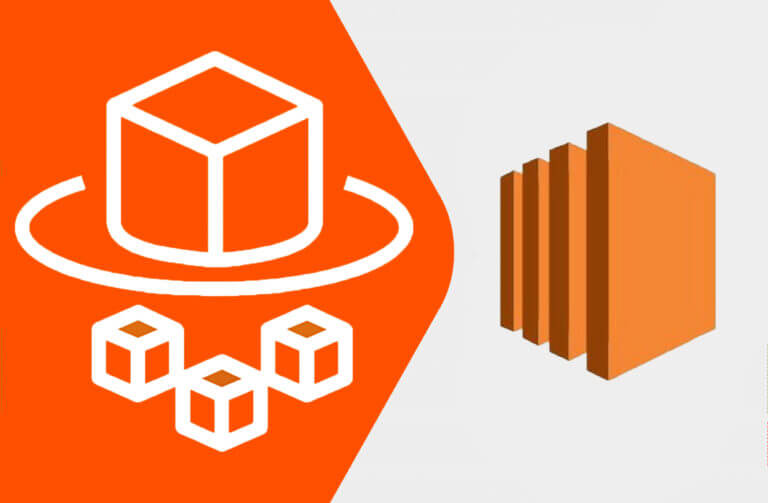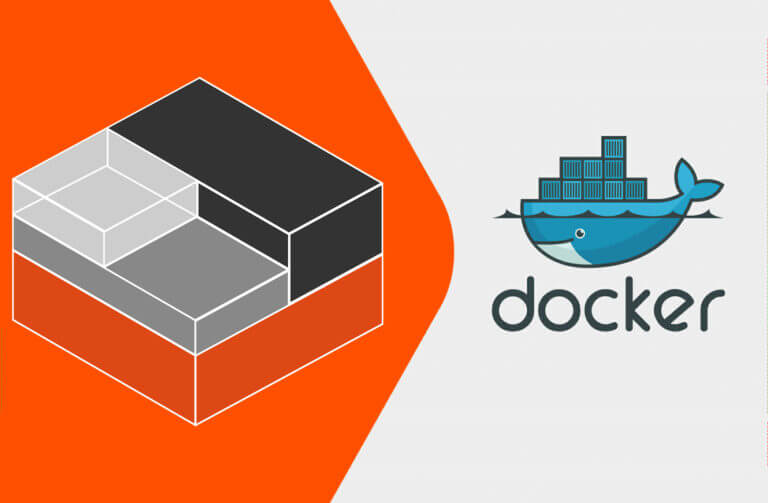Summary
Docker and Ansible are two valuable tools in the DevOps toolbox. Ansible automates a wide range of tasks, while Docker focuses on containerization and application deployment.
The modern world of software development thrives on automation and containerization. These practices empower developers to build, deploy, and scale applications with agility and efficiency.
However, with the plethora of containerization, automation, and infrastructure management tools available, making the right choice can be challenging.
In this blog post, we’ll explore the functionalities of Ansible and Docker, two popular tools within the DevOps landscape, and spotlight their key differences and ideal use cases. By understanding their strengths, you’ll be well-equipped to select the optimal tool for your specific needs.
What Is Ansible?
Ansible is an open source automation platform that simplifies complex tasks such as configuration management, application deployment, and orchestration. Unlike traditional configuration management tools, Ansible operates in an agentless fashion. This means you don’t need to install additional software on every system you manage. Ansible operates over SSH, making it lightweight and efficient. This simplifies deployment and reduces the software footprint on your infrastructure.
The following are some key beneficial features of Ansible:
- Agentless architecture: There’s no need to install additional software on managed systems, streamlining deployment.
- Idempotent operations: Ansible ensures tasks only run when necessary. This safeguard, known as idempotence, prevents accidental configuration changes and maintains a consistent state across your systems.
- Playbooks: Ansible’s playbooks are the heart of its automation capabilities. It uses reusable code blocks encapsulating complex configuration workflows. These modular units allow you to automate repetitive tasks and ensure consistency across deployments.
- Inventory management: Ansible keeps track of all the systems you manage within an inventory file. This centralized approach simplifies configuration management and reduces the risk of errors.
What Is Docker?
Docker is a game-changer, revolutionizing how we build, ship, and run software. It’s an open source platform that enables developers to package applications and their dependencies into self-contained units called containers. These containers encapsulate everything needed to run an application, including the code, runtime, libraries, and dependencies, ensuring consistency and portability across different environments.
Docker’s architecture revolves around container images built from Dockerfile, a text-based script that defines the steps required to build a container image. These images are lightweight, immutable artifacts that can be versioned, shared, and distributed through Docker registries. By leveraging images, developers can encapsulate their applications and dependencies in a standardized format, eliminating compatibility issues and simplifying deployment workflows.
This approach offers several advantages:
- Portability: Containers isolate applications from the underlying environment. This ensures applications run flawlessly across different platforms, from on-premises servers to various cloud providers.
- Isolation: Each container operates in its own sandbox, preventing conflicts with other applications or the host system. This isolation promotes stability and simplifies troubleshooting within your environment.
- Scalability: Need to ramp up your application quickly? Docker allows for effortless scaling by spinning up additional containers. This on-demand scalability empowers you to easily meet fluctuating demands.
Ansible vs. Docker: Comparison
Now that we’ve explored the fundamental principles and strengths of both Ansible and Docker, let’s delve into a comparative analysis to understand how these tools differ and where their strengths lie.
Deployment Paradigm
Ansible operates using a push-based deployment model, where a central control node orchestrates the execution of tasks on remote systems via SSH. This approach simplifies management and ensures consistency but may introduce latency in large-scale deployments.
Docker, on the other hand, utilizes a container-based deployment model, where applications and their dependencies are packaged into lightweight, portable containers. These containers can be deployed consistently across different environments, providing a standardized runtime environment for applications.
Scope of Automation
Ansible excels in automating a wide range of tasks, including configuration management, application deployment, and infrastructure provisioning. Its agentless architecture and declarative language make it well-suited for managing heterogeneous environments and enforcing desired states.
While Docker primarily focuses on containerization and application deployment, it also offers tools for automating container lifecycle management, such as Docker Swarm and Docker Compose. These tools simplify tasks like scaling, load balancing, and service discovery, enhancing Docker’s automation capabilities.
Resource Utilization
Since Ansible operates over SSH and executes tasks remotely, it relies on the resources of the control node rather than the managed nodes. This can lead to scalability challenges in large deployments and may require additional infrastructure to handle concurrent connections.
Docker containers leverage the host operating system’s kernel and share resources, making them highly efficient in terms of resource utilization. Containers have minimal overhead compared to virtual machines and can be spun up and torn down quickly, enabling efficient use of compute resources.
Flexibility and Extensibility
Ansible’s modular design and extensive library of modules make it highly flexible and extensible. Users can leverage pre-built modules or develop custom ones to suit their specific automation needs. Ansible also integrates seamlessly with other tools and technologies, allowing for seamless integration into existing workflows.
The Docker ecosystem is rich with tools and extensions that extend its functionality and adapt it to various use cases. Docker Compose, for example, simplifies the management of multi-container applications, while Docker Swarm enables orchestration of containerized services at scale. Docker also supports plugins and integrations with various third-party tools.
Community and Ecosystem
Ansible boasts a vibrant and active community of users and contributors, providing extensive documentation, tutorials, and support resources. The Ansible Galaxy repository hosts thousands of reusable roles and playbooks contributed by the community, accelerating automation initiatives.
Docker has widespread adoption and a robust ecosystem of tools and services built around its platform. From container registries and continuous integration tools to monitoring and logging solutions, Docker’s ecosystem offers a comprehensive suite of resources for containerized application development and deployment.
Use Cases for Ansible
Ansible is a Swiss army knife for automation. It’s ideal for use in various scenarios where automation can save time and effort. Here are some examples:
- Infrastructure provisioning and configuration management: Ansible excels in automating the provisioning and configuration of infrastructure components, such as servers, networking devices, and cloud resources.
- Application deployment and lifecycle management: Ansible streamlines the deployment and management of applications across diverse environments, from development to production. By defining application configurations as Ansible playbooks, teams can automate the entire application lifecycle, including installation, configuration, and updates.
- Orchestration and workflow automation: Ansible’s orchestration capabilities enable teams to automate complex workflows involving multiple tasks and dependencies such as in microservices or managing batch processing jobs.
- Continuous integration and continuous deployment (CI/CD): Ansible integrates seamlessly with CI/CD pipelines, automating the build, test, and deployment phases of software development.
- Cloud automation and management: Ansible simplifies the management of cloud resources across multiple providers, enabling organizations to automate provisioning, scaling, and configuration tasks. Ansible’s cloud modules provide abstraction layers for interacting with popular cloud platforms, facilitating cloud-agnostic automation workflows.
- Network automation and configuration: By treating network devices as programmable infrastructure, Ansible allows you to automate network configuration and management tasks.
- Security compliance and remediation: Ansible helps organizations enforce security policies and compliance standards by automating security-related tasks, such as vulnerability scanning, patch management, and configuration hardening.
Use Cases for Docker
Areas where you can use Docker in software development and deployment include the following:
- Microservices architecture: Docker is tailor-made for microservices architecture, where applications are broken down into small, independently deployable services. By encapsulating each service in a Docker container, organizations can achieve modularity, scalability, and fault isolation, enabling rapid development and deployment of microservices-based applications.
- Continuous integration and continuous deployment (CI/CD): Docker integrates seamlessly with CI/CD pipelines, enabling organizations to automate the build, test, and deployment phases of software development. By containerizing applications and leveraging Docker images, teams can achieve fast and reliable deployments, reducing time to market and improving software quality.
- Immutable infrastructure: Docker promotes the concept of immutable infrastructure, where infrastructure components, such as servers and containers, are treated as disposable entities. This ensures reliability and scalability in their infrastructure deployments and facilitates easier rollbacks and updates.
- Hybrid cloud deployments: Docker simplifies hybrid cloud deployments by providing a consistent runtime environment for applications across on-premises data centers and public cloud environments. Organizations can package their applications into Docker containers and deploy them seamlessly across hybrid cloud infrastructures, maximizing flexibility and agility.
- DevOps automation: Docker facilitates DevOps practices by automating application deployment and scaling, thereby streamlining collaboration between development and operations teams. With Docker, organizations can implement infrastructure-as-code principles, automate infrastructure provisioning, and achieve continuous delivery of software updates.
- High-performance computing (HPC): Docker is increasingly adopted in high-performance computing (HPC) environments, where performance, scalability, and resource efficiency are paramount.
- Internet of things (IoT) deployments: Docker simplifies IoT deployments by providing a lightweight and portable runtime environment for edge devices and IoT applications.
Ansible vs. Docker: Integration Possibilities
While serving distinct purposes, Ansible and Docker become formidable duos when combined. By bringing Ansible’s automation capabilities together with Docker’s containerization platform, you can unlock new levels of efficiency and agility in your development and operations workflows.
Ansible playbooks can be used to set up a development environment with all the necessary tools pre-installed within Docker containers, ensuring consistency across development teams.
In a production environment, Ansible can automate the deployment of a complex microservices application built with Docker containers. The playbook can handle tasks like spinning up containers, configuring network settings, and ensuring all services are running smoothly.
Some other use cases that combine Ansible and Docker are:
- Monitoring and logging Docker containers with Ansible
- Creating Docker images with Ansible
- Integrating Ansible and Docker in CI/CD pipelines
- Configuring Docker hosts with Ansible
- Orchestrating Docker with Ansible
Conclusion
Docker and Ansible are both valuable tools in the DevOps toolbox, serving distinct purposes. By understanding their core functionalities and ideal use cases, you can make informed decisions about which tool best suits your specific requirements. To store data within containerized environments, Portworx® by Pure Storage provides a comprehensive data platform for container workloads.
When leveraging container technologies like Kubernetes, Portworx provides persistent storage solutions, ensuring data resilience and scalability for mission-critical applications. Similarly, Pure Cloud Block Store™ offers scalable block storage solutions perfectly suited for cloud-based deployments utilizing containers.







